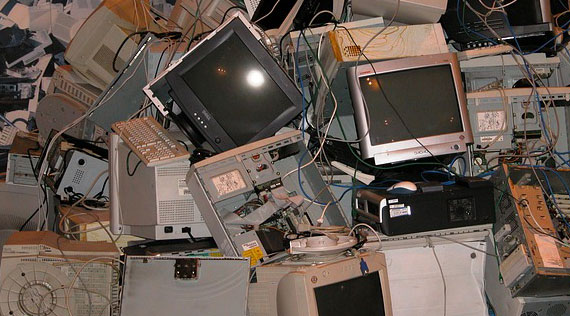
SEATTLE (Scrap Monster): The recently released Toxics and Pollution Prevention Evaluation Report by the Minnesota Pollution Control Agency (MPCA) suggests significant decline in weight of recycled e-scrap in 2017. The e-scrap recycling weight dropped by more than 20% from 36.2 million pounds in 2016 to 28.7 million pounds in 2017.
MPCA report lists out various possibilities that might have led to the huge drop in recycling weight. The introduction of hefty drop-off fees for electronics by some stores including Best Buy might have prevented at least some residents from getting rid of their e-scrap. The ongoing lightweighting trend in consumer technology might also have played a prominent role. The number of CRTs in the end-of-life stream have recorded significant decline during recent times, thereby resulting in reduced weight.
Minnesota had introduced major changes to its electronics recycling program in 2016. The bill HF 2841 proposed major changes to the state’s extended producer responsibility program for electronics, including provision to provide recycling weight credits to manufacturers exceeding their recycling targets. Also, manufacturers are also allowed to hold on to credits for future years or sell them at market rates to other electronic producers.
ALSO READ: Minnesota's Recycling Rate Exceeded the National Average
MPCA report notes that funding gap has narrowed. However, Minnesota still faces various challenges to its e-scrap recycling plan. The program needs to be revamped so as to effectively deal with safe treatment of e-plastics. It must be noted that many e-plastic materials contain brominated flame-retardants (BFRs), which are known to be linked to a myriad of health effects including cancer.
The report calls upon manufacturers to find ways to avoid the use of toxic chemicals in the production process. Also, they must ensure that those products containing toxic chemicals are properly managed at the end of their useful lives.
| Copper Scrap View All | |
| Alternator | 0.31 (0) |
| #1 Copper Bare Bright | 3.69 (0.04) |
| Aluminum Scrap View All | |
| 356 Aluminum Wheels (Clean) | 0.71 (0) |
| 6061 Extrusions | 0.62 (0) |
| Steel Scrap View All | |
| #1 Bundle | 475.00 (0) |
| #1 Busheling | 495.00 (0) |
| Electronics Scrap View All | |